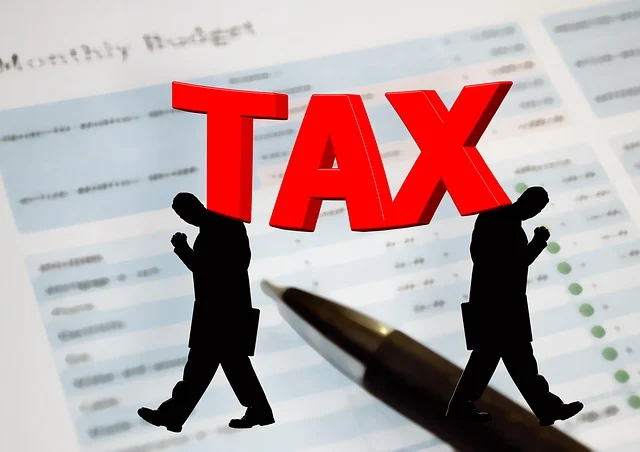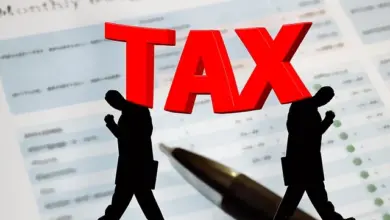Understanding the Dutch Tax System: What Expats Should Know

The Dutch tax system is known for being comprehensive and efficient, but it can also be complex for newcomers. As an expat moving to the Netherlands, understanding how taxes work is crucial to ensure compliance and avoid unexpected financial burdens. This guide breaks down the key components of the Dutch tax system and provides essential information for expats.
1. Who Pays Taxes in the Netherlands?
Your tax obligations depend on your residency status:
Tax Residents:
You are considered a tax resident if:
- You live in the Netherlands or have strong ties to the country (e.g., family, property).
- You spend more than 183 days per year in the Netherlands.
- Your primary economic interests (e.g., employment, business) are in the Netherlands.
As a tax resident, you are taxed on your worldwide income , including earnings from abroad.
Non-Tax Residents:
If you’re not a tax resident, you only pay taxes on income earned in the Netherlands, such as wages from a Dutch employer or rental income from Dutch property.
2. Types of Taxes in the Netherlands
The Dutch tax system includes several types of taxes that expats should be aware of:
Income Tax (Inkomstenbelasting):
Income tax is divided into three categories, known as boxes :
- Box 1: Income from Work and Home Ownership
- Includes wages, pensions, benefits, and profits from self-employment.
- Progressive rates apply (as of 2023):
- Up to €73,031: 36.93%
- Above €73,031: 49.50% (including social security contributions)
- Mortgage interest deductions are available for homeowners.
- Box 2: Income from Substantial Shareholdings
- Applies to individuals owning at least 5% of a company’s shares.
- Taxed at a flat rate of 26.9% (as of 2023).
- Box 3: Savings and Investments
- Covers savings accounts, investments, and other assets.
- A deemed return (fixed percentage of asset value) is taxed annually.
- Rates vary based on asset thresholds and are adjusted periodically.
Social Security Contributions (Volksverzekeringen):
These mandatory contributions fund national programs like healthcare, unemployment benefits, and pensions. Contributions are deducted directly from your salary.
Value Added Tax (BTW):
- The standard VAT rate is 21% , with reduced rates of 9% for essentials like food, books, and public transport.
Wealth Tax:
While there’s no explicit wealth tax, Box 3 taxation effectively functions as one by taxing returns on savings and investments.
Property Taxes:
- Owning Property: Local municipalities levy annual property taxes (onroerende zaakbelasting ) based on the property’s value.
- Buying Property: A transfer tax (overdrachtsbelasting ) of 2% applies to residential properties and 8% for commercial properties.
3. Double Taxation Treaties
The Netherlands has double taxation agreements with over 100 countries to prevent expats from being taxed twice on the same income. If you’re earning income abroad, consult the treaty between the Netherlands and your home country to determine which country has taxing rights.
For example:
- If you’re a U.S. citizen, the U.S.-Netherlands tax treaty ensures you don’t pay taxes on the same income in both countries.
- Use IRS Form 1116 to claim foreign tax credits for taxes paid to the Dutch government.
4. Mandatory Declarations
Expats must declare their global income and assets to Dutch authorities, even if they’re taxed elsewhere. Key declarations include:
Income Declaration:
File your annual income tax return (aangifte ) online via the Dutch Tax and Customs Administration (Belastingdienst ).
Asset Declaration:
Report foreign bank accounts, investments, and real estate holdings. Failure to disclose assets can result in penalties.
Bank Account Reporting:
Under the Common Reporting Standard (CRS), banks automatically share account information with tax authorities. Ensure your accounts are declared to avoid discrepancies.
5. Special Tax Benefits for Expats
The Netherlands offers incentives to attract highly skilled international professionals:
30% Ruling (30%-Regeling):
This tax advantage allows eligible expats to receive up to 30% of their salary tax-free for a maximum of five years. To qualify:
- You must earn above a certain threshold (€42,374 as of 2023, or €33,374 for scientific researchers).
- Your expertise must be scarce or unavailable in the Dutch labor market.
Partial Non-Resident Status:
Under the 30% ruling, you may opt for partial non-resident status, meaning you’re treated as a non-resident for Box 2 and Box 3 taxation purposes.
Startup Incentives:
Entrepreneurs starting innovative businesses may benefit from reduced taxes and exemptions under the Innovation Box regime.
6. Filing Taxes in the Netherlands
The Dutch tax system uses a combination of self-assessment and automated calculations. Here’s how to file:
- Online Filing: Most taxpayers file electronically via the official website (Mijn Belastingdienst ).
- Paper Filing: Available for those without internet access, though deadlines differ.
- Third-Party Assistance: Consider hiring a tax advisor or accountant to navigate complex filings.
Deadlines:
- Personal income tax returns are typically due by April 1st following the tax year.
- Extensions may be granted in special cases.
7. Healthcare and Social Security Contributions
The Netherlands has a robust public healthcare system funded by social security contributions. As an expat:
- If employed, your employer deducts contributions directly from your salary.
- Self-employed individuals contribute through the Zorgverzekeringswet (Health Insurance Act).
- Retirees and freelancers may qualify for exemptions or reduced rates.
To access healthcare, purchase mandatory basic health insurance (basisverzekering ) from a private insurer. Additional coverage (aanvullende verzekering ) is optional.
8. Common Mistakes to Avoid
- Underreporting Income: Declare all sources of income, including foreign earnings.
- Missing Deadlines: Late filings incur penalties and interest charges.
- Ignoring Asset Declarations: Undisclosed foreign assets can lead to severe fines.
- Overlooking Social Contributions: These are mandatory and separate from income tax.



